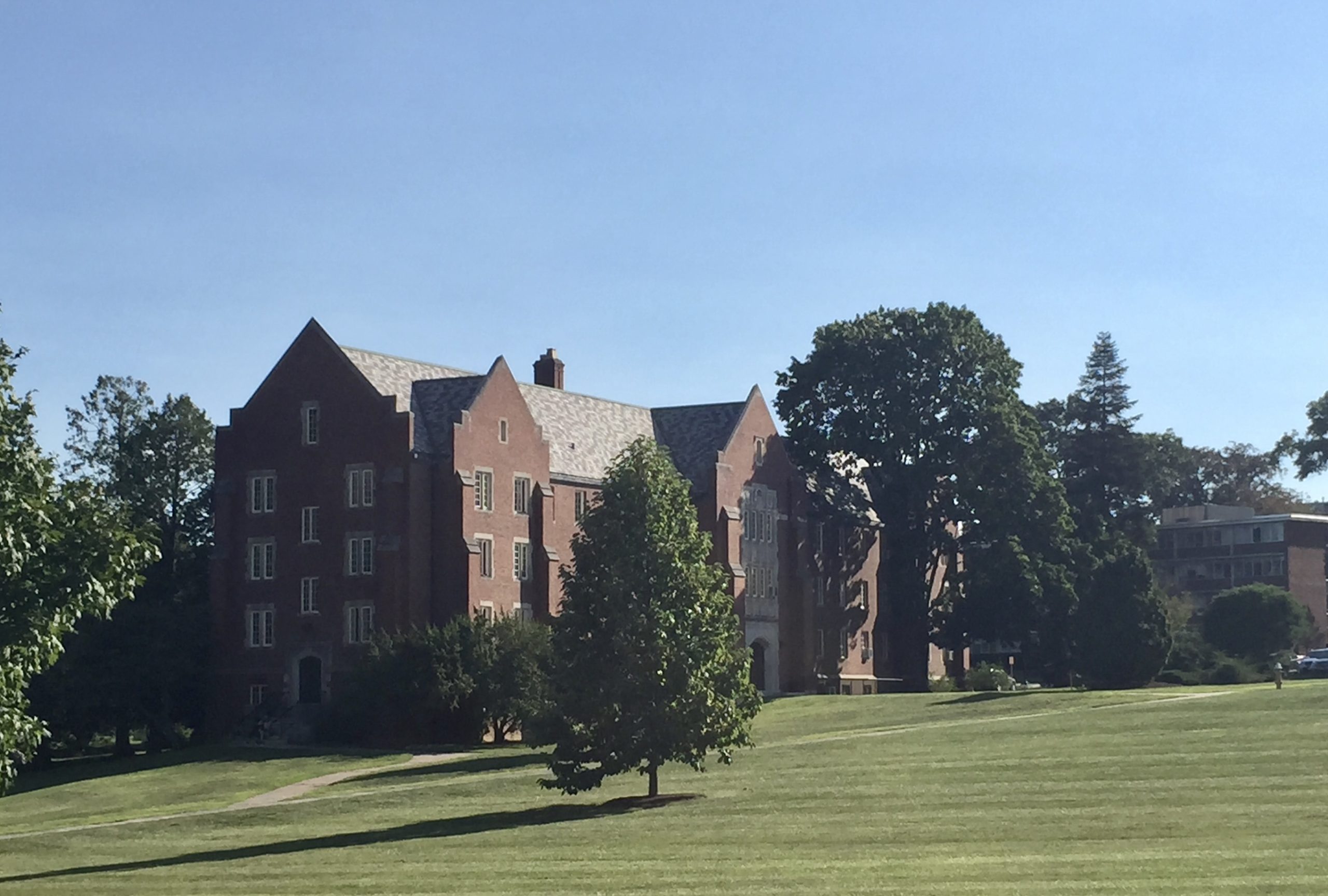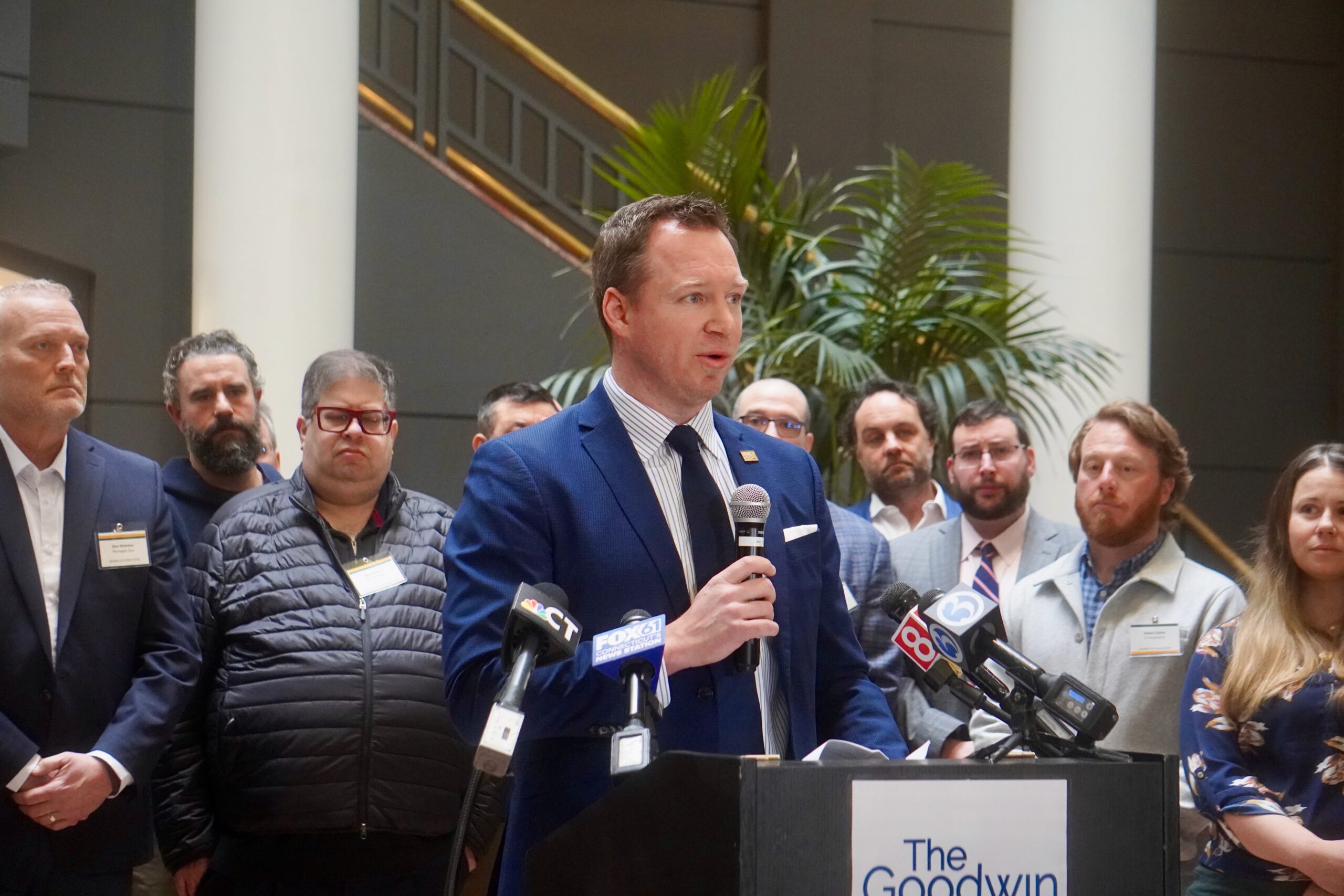College Bound: What Can We Expect for Higher Education Under Trump 2.0?

Audio By Carbonatix

Photo credit: Ronni Newton (we-ha.com file photo)
We-Ha.com will be publishing a series of essays/blogs/reflections on the issue of going to college – primarily a set of thoughts and musings, along with some practical advice, intended to support students and parents as they embark on this journey. While many of our readers are experts in this topic, many others are less knowledgeable and have little outside support. We hope this is helpful to all readers as they go through the various stages of getting into and getting something out of college.

Adrienne Leinwand Maslin. Courtesy photo
By Adrienne Leinwand Maslin
By now, many of you have read the articles or listened to news stories about American colleges strongly suggesting that their international students return to the U.S. before Donald Trump’s inauguration on Jan. 20, 2025. This is because of fear of travel bans the administration might impose immediately upon or very soon after taking office.
Cornell University’s Office of Global Learning has told students and faculty who might be traveling abroad that “A travel ban is likely to go into effect soon after inauguration. The ban is likely to include citizens of the countries targeted in the first Trump administration: Kyrgyzstan, Nigeria, Myanmar, Sudan, Tanzania, Iran, Libya, North Korea, Syria, Venezuela, Yemen, and Somalia. New countries could be added to this list, particularly China and India.
A reduction in the number of international students studying in the U.S. is just one change higher education might experience under the second Trump administration. While no one knows for sure what higher education might look like during Trump 2.0, experts have cited abolishing the Department of Education, tax reform, and changes to Pell grants which will all affect universities and their students. Initiatives such as DEI (Diversity, Equity, and Inclusion) and free speech on campuses will most likely be scrutinized, the nation’s accreditation system could be completely revamped, and greater emphasis might be placed on vocational training. Let’s take a closer look at some of the potential changes.
President-elect Trump has said that colleges and universities are run by “Marxist maniacs” and Vice President-elect Vance has referred to universities as “the enemy” despite the fact that both are graduates of Ivy League institutions. (As of this writing, “co-president” Elon Musk hasn’t weighed in.) The Trump administration may attempt to curb what it and many U.S. citizens believe is the liberal bias of higher education in our country today. For example, the University of Michigan, one of the bastions of DEI efforts for many years, is considering dismantling its DEI program. In early December, the university relieved job applicants from having to write DEI statements as part of their job applications and current faculty from having to include such statements in promotion and tenure applications. Whether the Trump administration will delve further into this issue or try to involve itself in curriculum issues such as the teaching of critical race theory is unknown but it is certainly possible.
During the first Trump administration efforts were made to reduce the amount of financial aid dollars available to students. “… its 2020 budget called for a $5.6 billion reduction in funding, a nearly 8 percent cut. The administration targeted Federal Work-Study in particular, calling for “significant” reductions to the program in 2017 and again in 2018. In 2020 Trump’s budget proposal included a $630 million cut to the program – about half of its total budget – and called for the complete elimination of federal Supplemental Educational Opportunity Grant programs, which fill gaps in aid for students with extraordinary financial need (https://www.insidehighered.com/news/government/student-aid-policy/2024/11/14/future-financial-aid-under-trump).
It is quite conceivable that under an all-Republican Congress, such cuts might occur. The same article from Inside Higher Ed that is cited above does say that Pell funding will most likely not be reduced but that cuts to such support programs like work-study, which is typically incorporated into financial aid awards and pays students to work in various offices on campus, easily could be. Further, most higher education officials expect Trump to try to reverse President Biden’s policies to forgive student loan debt which, according to the Los Angeles Times, amounts to over “$175 billion for more than 4.8 million Americans.” Of course, all eyes are on the FAFSA, given the disastrous roll-out of the revised form in fall 2023. Who knows what disruptions, if any, the transition of administrations will bring to the current financial aid awards cycle.
Another change we might see is the loosening of regulations surrounding for-profit colleges – remember Trump University? – and other types of nontraditional educational institutions. Such a move could raise concerns about quality and how we ensure students have the information they need to make the best choices for their education.
And while we’re talking about issues of quality and accountability, it is feasible that the next Trump administration will seek to reduce the control and influence of the country’s accrediting agencies. One concern of many Republicans is the emphasis accreditors put on issues of diversity as already mentioned above.
Project 2025, … described accreditation reviews as “wildly expensive audits by academic ‘peers’ that stifle innovation and discourage new institutions of higher education.” Worse, the report contends, is that accrediting agencies force colleges to adopt DEI standards that may conflict with private colleges’ religious missions and fail to uphold standards for freedom of speech. The solution, the authors argue, is to limit what accreditors can require only to what is contained in federal law. Trump has gone a step further, calling for the creation of new accreditors that would ‘defend the American tradition and Western civilization’” (https://www.chronicle.com/article/trumps-vision-for-college-accreditation-could-shake-up-the-sector).
One area where Republicans and Democrats may find agreement is renewed attention to vocational training. Many members of both parties agree that attendance at a four-year institution is not the only viable educational pathway available to students. Trump has discussed apprenticeship programs in the past along with technical education programs and workforce development. It would not be surprising to see more focus on these alternatives to traditional colleges and universities.
Another major issue that Trump has clearly expressed his opinions about has to do with LGBTQ+ rights and transgender rights. Of course, the issues he raised throughout his campaign regarding how schools handle transgender students at the K-12 level do not apply at the college level. Nonetheless, Trump claims he will prohibit trans athletes from playing on college athletic teams that conform to their gender identity. “We’re not going to let it happen” says Trump. Further, a reversal of the Biden administration’s position that Title IX regulations include gender and sexual identity is also expected. This will have definite implications as to how colleges carry out their responsibilities regarding Title IX.*
Coming full circle to where I began this article is the concern that the next Trump administration will seek to reduce the number of international students studying in the United States. Despite recent troubles, the U.S. system of higher education has always been recognized as the leading higher education system in the world. Students from countries all over the globe travel to the U.S. to study. International students contribute to diversity on our campuses, are typically full-paying students which universities count on to allow them to discount tuition to U.S. students, are usually the brightest young people in their country, and enrich the learning environment of American colleges. To lose the academic and cultural richness that international students bring to our colleges and universities would indeed be unfortunate.
As of this writing, inauguration day is just days away. All we can do is wait and see but I bet we won’t have to wait for long.
*On Jan. 9, 2025, “in a 15-page opinion, Chief Judge Danny C. Reeves of the Eastern District of Kentucky wrote that the Education Department could not lawfully expand the definition of Title IX to prohibit discrimination based on gender identity, as it had proposed last year. ‘The entire point of Title IX is to prevent discrimination based on sex,’ he wrote. ‘Throwing gender identity into the mix eviscerates the statute and renders it largely meaningless’”(The New York Times, January 9, 2025). According to Inside Higher Ed of January 10, 2025 (https://www.insidehighered.com/) “President-elect Donald Trump has criticized Biden’s Title IX changes, and many experts expect him to issue new regulations that are more conservative than his 2020 rule, especially concerning LGBTQ+ students.”
Adrienne Leinwand Maslin is retired from a 45-year career in higher education administration. She has worked at public and private institutions, urban and rural, large and small, and two-year and four-year, and is Dean Emerita at Middlesex Community College. She has held positions in admissions, affirmative action, president’s office, human resources, academic affairs, and student affairs. Maslin has a BA from the University of Vermont, an MEd from Boston University, and a PhD from the University of Oregon.
Like what you see here? Click here to subscribe to We-Ha’s newsletter so you’ll always be in the know about what’s happening in West Hartford! Click the blue button below to become a supporter of We-Ha.com and our efforts to continue producing quality journalism.



